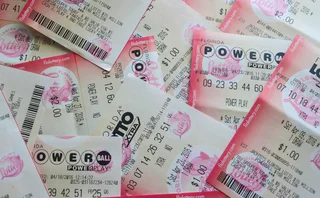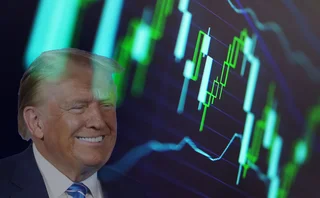
No soft landings in flight to safety from Russia
Impact of Ukraine invasion hit bank balance sheets hard; its effects look set to continue
Global banks’ flight to safety from Russia-related exposures is at full throttle. As economic sanctions continue to hit, divesting soured assets and implementing defences to preserve capital are a priority for exposed dealers.
The Q1 earnings season gave a glimpse into top lenders’ actions against rising market, credit and counterparty risk stemming from Russia.
It also showed more work is needed and that the impact on bank portfolios and balance sheets has not been uniform – partly due to differing exposures before the Ukraine invasion – but the diverse actions taken since February 24 have also played a significant role.
The sanctions have prompted wild moves in banks’ risk gauges. UBS, for example, saw the capital charge for settlement risk spike 238% – even higher than during the worst of the 2020 Covid-19 outbreak.
Its chief executive officer claims the sanctions not only led to an increase in counterparty risk, but also prevented it from collecting money from solvent counterparties. Whether this was an intended consequence of the sanctions isn’t clear.
What is clear is that the war could drag on for much longer and continue to hurt the bank’s coffers.
At other lenders, soured Russia exposures and related provisioning costs skyrocketed. By end-March, ING Bank and UniCredit, two of the most exposed lenders before the invasion, reported an aggregate $2.1 billion in loan-loss provisions against Russia-related exposures.
Both banks’ core capital ratios fell as a result, and UniCredit tied future payout plans to the successful unwinding of its Russian investments.
One bank that didn’t wait for quarterly results before cancelling planned dividends was Austria’s Raiffeisen Bank International. In Q1, the bank’s value-at-risk – its measure of banking and trading book sensitivity to market swings – exploded. One- and 20-day VAR jumped 317% and 154% respectively to multi-year highs.
Although less exposed to Russia than its European peers, JP Morgan also took its knocks when sanctions – and wild swings in nickel prices – hit. The US dealer took a $524 million loss from derivatives valuation adjustments – the largest since the pandemic first hit.
So, the picture is clear: banks exposed to Russia have taken a serious beating. Additional provisioning or a prolonged halt to payout or buy-back plans may yet deal further blows.
So long as sanctions remain in place and Russian counterparty creditworthiness continues to deteriorate, closing out positions and writing off exposures might be the only reasonable strategy.
The impact will take some time to absorb.
Only users who have a paid subscription or are part of a corporate subscription are able to print or copy content.
To access these options, along with all other subscription benefits, please contact info@risk.net or view our subscription options here: http://subscriptions.risk.net/subscribe
You are currently unable to print this content. Please contact info@risk.net to find out more.
You are currently unable to copy this content. Please contact info@risk.net to find out more.
Copyright Infopro Digital Limited. All rights reserved.
As outlined in our terms and conditions, https://www.infopro-digital.com/terms-and-conditions/subscriptions/ (point 2.4), printing is limited to a single copy.
If you would like to purchase additional rights please email info@risk.net
Copyright Infopro Digital Limited. All rights reserved.
You may share this content using our article tools. As outlined in our terms and conditions, https://www.infopro-digital.com/terms-and-conditions/subscriptions/ (clause 2.4), an Authorised User may only make one copy of the materials for their own personal use. You must also comply with the restrictions in clause 2.5.
If you would like to purchase additional rights please email info@risk.net
More on Our take
Fannie, Freddie mortgage buying unlikely to drive rates
Adding $200 billion of MBSs in a $9 trillion market won’t revive old hedging footprint
Degree of Influence 2025: Derivatives pricing dominates; quants don’t follow the AI herd
Rates and volatility modelling, as well as trade execution, top quants’ priorities
There’s a punt factor in stocks that investors might be missing
Speculative trading creates linkages between crypto and equities that vary depending on the stocks in question
Passive investing and Big Tech: an ill-fated match
Tracker funds are choking out active managers, leading to hyped valuations for a dangerously small number of equities
Sticky fears about sticky inflation
Risk.net survey finds investors are not yet ready to declare victory on inflation – with good reason
Why a Trumpian world could be good for trend
Trump’s U-turns have hit returns, but the forces that put him in office could revive the investment strategy
Roll over, SRTs: Regulators fret over capital relief trades
Banks will have to balance the appeal of capital relief against the risk of a market shutdown
Thrown under the Omnibus: will GAR survive EU’s green rollback?
Green finance metric in limbo after suspension sees 90% of top EU banks forgo reporting








